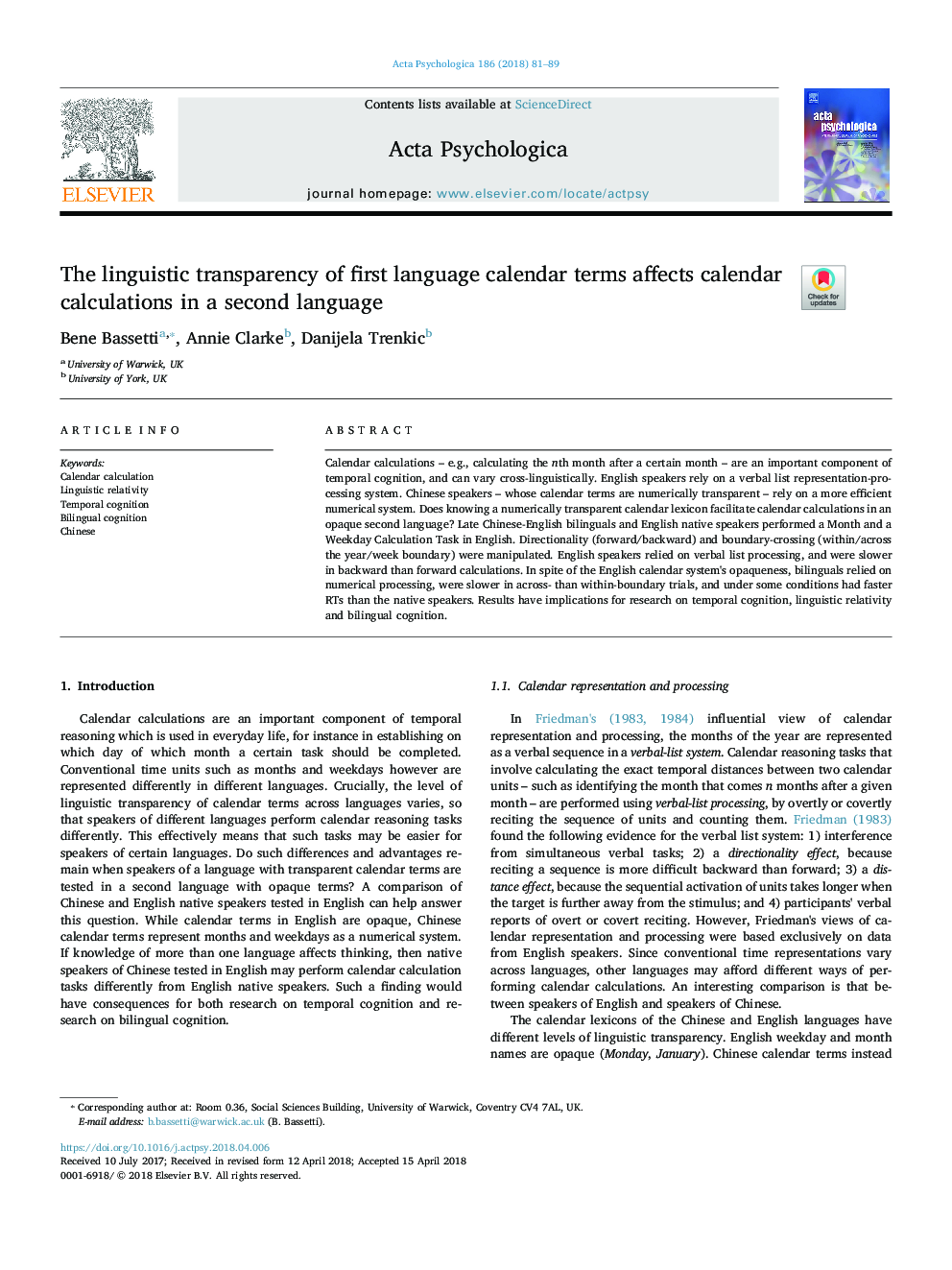| Article ID | Journal | Published Year | Pages | File Type |
|---|---|---|---|---|
| 7276707 | Acta Psychologica | 2018 | 9 Pages |
Abstract
Calendar calculations - e.g., calculating the nth month after a certain month - are an important component of temporal cognition, and can vary cross-linguistically. English speakers rely on a verbal list representation-processing system. Chinese speakers - whose calendar terms are numerically transparent - rely on a more efficient numerical system. Does knowing a numerically transparent calendar lexicon facilitate calendar calculations in an opaque second language? Late Chinese-English bilinguals and English native speakers performed a Month and a Weekday Calculation Task in English. Directionality (forward/backward) and boundary-crossing (within/across the year/week boundary) were manipulated. English speakers relied on verbal list processing, and were slower in backward than forward calculations. In spite of the English calendar system's opaqueness, bilinguals relied on numerical processing, were slower in across- than within-boundary trials, and under some conditions had faster RTs than the native speakers. Results have implications for research on temporal cognition, linguistic relativity and bilingual cognition.
Related Topics
Life Sciences
Neuroscience
Cognitive Neuroscience
Authors
Bene Bassetti, Annie Clarke, Danijela Trenkic,
